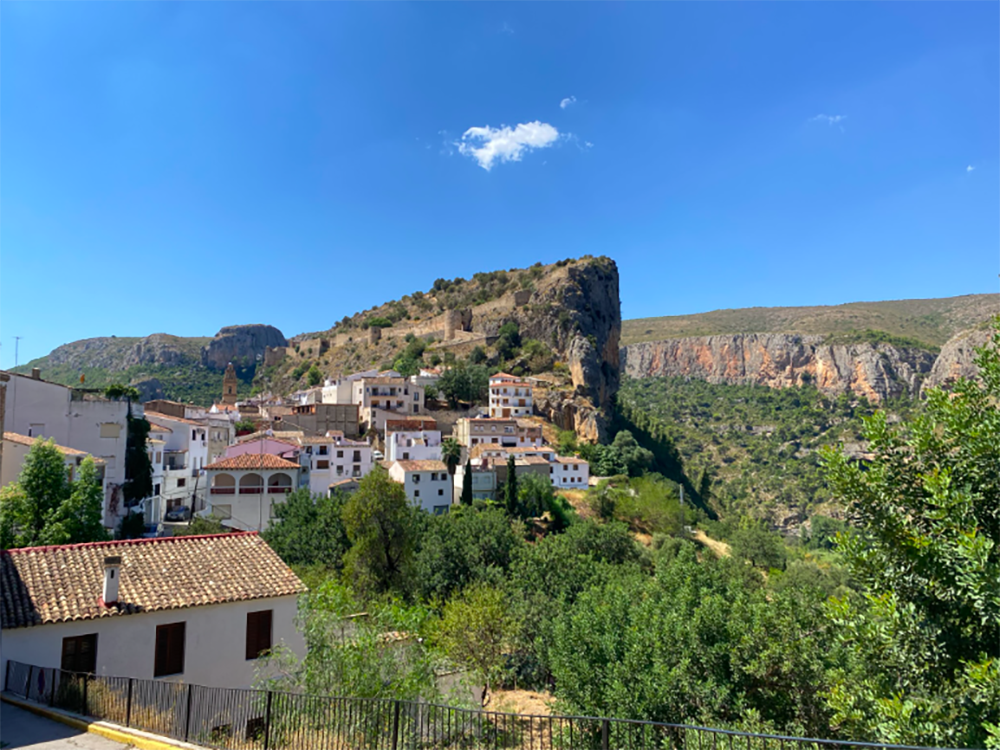From the airplane window at 15,000 feet on this sunny August morning, Spain is all shades of brown, skirls of scrubby vegetation and trees on the hilltops, open beige-and-yellow fields on the plains. (Where the rains in Spain fall, mainly, I’ve heard.) We are descending into Madrid on the first day of a 12-day vacation that will take us to places in this country where neither my wife Tatine nor I have ever been.
Madrid is not on the agenda for this trip, except for the airport and Hertz office, where we’re assigned a Lynk & Co SUV, which we’re told is a Chinese/Volvo hybrid. Whatever. It works and rides nicely. And soon we’re off to the country home of Tatine’s sister, a couple hundred miles away, just north of Valencia, near the Mediterranean. Siri gets us to A-3, the main highway south, and we’re off.

Aquarium in Valencia (Photo: Bruce VanWyngarden)
It feels like we’re driving through West Texas, except with no billboards to distract from the rolling vistas of dry mountains and green valleys and olive and sunflower fields. The high ground is often covered with windmills. We counted hundreds during our stay. And the south-facing slopes often feature arrays of solar panels. A high-speed train passes us as though we are standing still instead of going 120 kilometers per hour. No monster trucks, no asshole drivers, just small-to-average-sized vehicles zipping along on a perfectly maintained four-lane highway. Did I mention there were no billboards?
Tatine’s sister’s house is set on a couple of acres filled with fruit and olive trees. They have a big garden and chickens for eggs, and the house is cooled and heated with solar power. They are not field hippies, just ordinary people living comfortably in ways that preserve energy costs and help the environment. It’s a way of life here, not a political statement.
Valencia, 20 miles south, has a population of 800,000 or so. The murder rate averages six to eight people a year. In similarly sized Memphis, we had more than 340 murders last year, more than in the entire country of Spain. These are difficult things to justify or explain. But nobody walks into a super-mercado carrying a gun, so there’s that.

I don’t have space in this column to recount all of our further adventures driving around Spain. It was something of a family reunion, with grandchildren showing up from Brooklyn and Tatine’s mother coming over from a nearby village. We managed, in various combinations, to visit some spectacular mountainous country with ancient villages where many of the buildings were erected in the 11th century and where there were cathedrals with Moorish influences from 1,000 years ago. It was a life-affirming, eye-opening visit. Returning to the U.S. after a couple weeks in a country where there is literally no litter, where there are no vile accusations and blatant lies muddying the daily political discourse on television, where people of all races appear to live in harmony, was something of a shock.
No unbiased observer dropping into Memphis (or Nashville or Atlanta or any major American city, to be honest) and spending a few days would have a problem identifying which country was more civilized, more advanced, more livable, less polluted, less worrisome to visit.
We have made a mess of things in the United States, created a political logjam — in our states and in Washington, D.C. — that prevents us from being able to legislate the most logical and basic modern improvements to the country, such as an efficient high-speed rail system, or universal healthcare, or hell, just removing the prolific visual pollution of billboards from our beautiful landscape. We’re still fighting over oil prices and who’s to blame for them, while Spain (and Portugal) have moved ahead into a world where they don’t worry about the whims of a Saudi prince or Vladimir Putin buckling their economy or leaving them in the cold.
We are so far behind. We can do so much better here. Or can we? I guess that’s the question, isn’t it?



